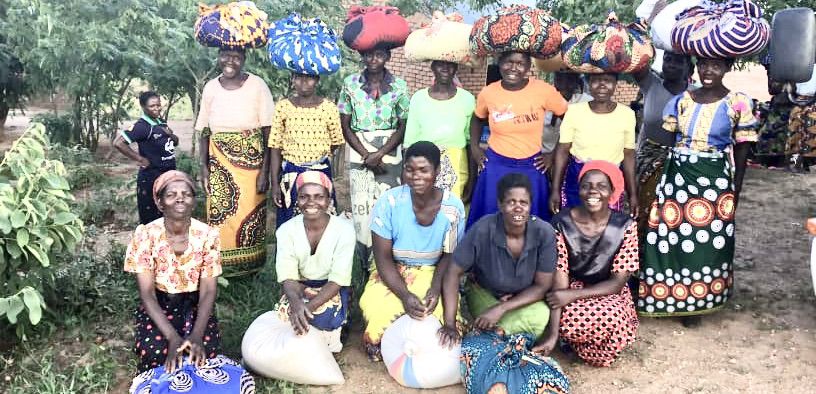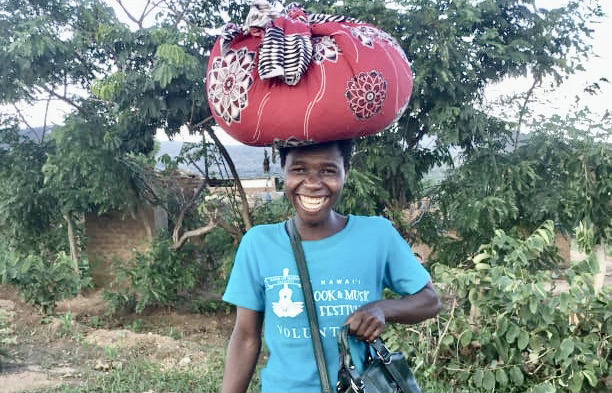
Each is armed with a big smile that indicates the importance and value of what they have just received.
Dowa District, Malawi … “The total food distributed was 60 Bags of 50Kgs (110 lbs.) with each of 150 recipients receiving 20 Kgs (44 lbs.) of maize each. That is a total of 3,000 kilograms or 6,613 pounds of food distributed.”
For some people, this story will be just a group of words on paper. Yes, in fact, it is upbeat. Yes, it is encouraging. Yes, it is positive and enlightening. But for 150 families in the Dowa District of central Malawi, it is actually much, much more than words on paper, “It is an exercise that is saving lives.”

When famine strikes government agencies face an ongoing crisis. As one of the poorest nations on earth Malawi has a very weak revenue stream from taxation. Poverty has been at critical levels for decades. Of the 20 million Malawians, 50% live below the international poverty line of $1.25 a day. Therefore, welfare payments are not part of the life of a village family. Nor can government agencies send out food stamps, welfare checks, or unemployment compensation. There is no social security for the elderly, and no insurance for catastrophic illnesses among the young. Village people cannot get in the family car and drive to a strategically located food bank to gain assistance to ward off famine, and they do not go to a corner pharmacy to pick up badly needed drugs.
